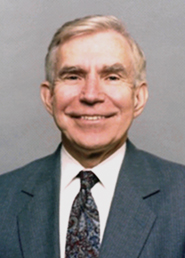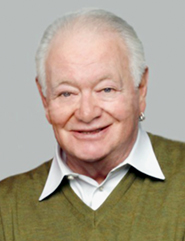Twenty years ago, a book titled “The Super Traders” set out to capture the “secrets and successes of Wall Street’s best and brightest” minds. Then, there were three national markets and 407.3 million shares traded a day. In today’s Part II of the April cover story are the perspectives of two more of those “best and brightest” minds on how trading has changed.
Here are the stories of Frank Baxter and Denny Engelman, two more Super Traders.
Third-Market Developer
Frank Baxter

Then: Chairman, Jefferies & Co.
The “third market” was the trading of exchange-listed stocks over the counter. Jefferies became the leading third-market operation, and Baxter restored vitality to the firm after a censure of its brokerage unit by federal regulators. Jefferies is a significant player in the global capital markets.
Now: Chairman emeritus, Jefferies & Co.
As technology has dramatically reduced transaction costs, the ability to start a business becomes much easier. In the financial services industry, this is most evident in investment management, where technology has made it almost seamless to start a money management firm from scratch. All of a company’s operational functions and infrastructure can be outsourced.
Unfortunately, we have not seen this on the sellside. Banks have become larger and government intervention has created a “too big to fail” syndrome, much to the detriment of smaller organizations in the financial services economy. Technology should allow innovative firms to challenge the financial services giants, as the third-market firms of the 1960s did.
I see our country returning to a much more individualized, entrepreneurial society, where you don’t have to be part of a large organization in order to start a business.
I have spent the last several years working to improve K-12 education. I am co-chairman of Alliance College-Ready Public Schools, which operates charter schools in Los Angeles. There is a revolution taking place that allows for a personalized delivery of education, as opposed to the traditional lecture, one-size-fits-all model we have been following for almost 200 years. I believe state government intervention is preventing 16 million inner-city kids from getting an education that would enable them to successfully negotiate the 21st century.
I also had the privilege of being the American ambassador to Uruguay from 2006 to 2009. My Spanish was almost nonexistent before I went, but I can get by quite nicely these days. The people are wonderful and I still return frequently, helping them with their elementary education and capital markets.
Today, Jefferies is one of the leading global financial institutions. While the company has dramatically evolved, the values and traditions it was built upon remain the same, and it still starts with putting the customer first. It also means having a very flat organization and a firm where employees are also shareholders. So while Jefferies has adapted to changing conditions, its values have remained constant.
During the dotcom bust and the most recent market meltdown, we had the opportunity to obtain some very high-quality individuals and businesses. We are able to take advantage of volatility in the marketplace, not only in securities, but also in people and businesses.
The Regional Floor Trader
Denny Engelman

Then: President, Engelman Securities
Engelman & Co. operated on the floor of the Midwest Stock Exchange for more than 30 years. Engelman and partners siphoned off trading volume from the New York Stock Exchange. The firm charged a penny and a half a share to execute an order.
Now: Retired
My Wall Street is long gone, but I saw the change coming long before it actually happened. That is why when I had the chance to sell our company in 2002, I jumped at the opportunity. The night before we closed the deal, my partners and I had a seven-hour meeting. My position was simple: If our value to the Street stayed viable, we could make the carrot that was tied to the end of the deal over the next three years. My partners were reluctant to give up control of the baby we had nurtured for more than 30 years. Ultimately, we decided to sell out and my reasoning turned out to be correct: Penny spreads and rapidly changing technology made us dinosaurs within the next two years. We didn’t get the carrot, but we still sold out at the top.
Technology changed everything. In the ’70s, ’80s and early ’90s, the art was to put two orders together by negotiating the spread. But with the advent of penny spreads, it was no use for a floor broker to put people together, because you can’t negotiate a penny. In addition, the use of volume-weighted average price trading strategies disintegrated the real reason for a floor broker. VWAP was just a computerized method to spread an order over time without taking any risk. Clients would not want brokers pick a point in time and buy the order because they did not want to take the responsibility of making a bad trading decision. Any broker who was able to trade VWAP soon became the preferred trading counterparty to the client.
Looking at all the changes taking place, I could see the writing on the wall. The demise of the middleman on the floor was inevitable. As history shows us, the only thing in life that is consistent is change, and that rate right now is unprecedented. But we need strong enforcement of our current rules and a change as to how we oversee trading, whether it be a stock, derivative or commodity.
I chuckle as I observe the market from my perch in the mountains outside of Las Vegas, where my wife and I have lived for the past three years. At least now I can chuckle as I listen to the bobbleheads on TV! I’m pretty damn happy-I’m still vertical.



